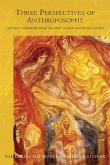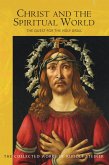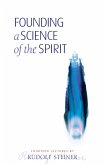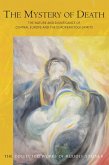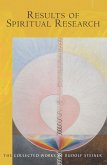Barely four months after the end of the First World War, with Europe in chaos and exhausted from years of conflict, Rudolf Steiner offered these lectures of hope and renewal. Despite continuing social troubles around the world, he knew that human beings had an opportunity to organize society in a new way. Steiner responded to this prospect by giving suggestions for creating innovative social structures that are in harmony with people's inner needs. Humanity as a whole is now facing a great challenge in that it is 'crossing the threshold' to the spiritual world, says Steiner. This means that an evolutionary separation is taking place within the human soul between thinking, feeling and will. For this to happen in a healthy way, the outer make-up of society should mirror and support our internal evolution. Steiner points to the urgent need for 'threefolding' - a separation between the workings of culture, economics and politics. This is a subconscious demand, he asserts - not for thinking up cranky ideas within a sect, but for shedding light on what is needed universally! These important lectures cover numerous themes, including the overcoming of class distinctions, the administration of money, technology and capitalism, the antisocial tendency of nationalism, and the future management of international relations. Twelve lectures, Dornach, Mar.-April 1919, GA 190
Dieser Download kann aus rechtlichen Gründen nur mit Rechnungsadresse in A, B, BG, CY, CZ, D, DK, EW, E, FIN, F, GR, H, IRL, I, LT, L, LR, M, NL, PL, P, R, S, SLO, SK ausgeliefert werden.



